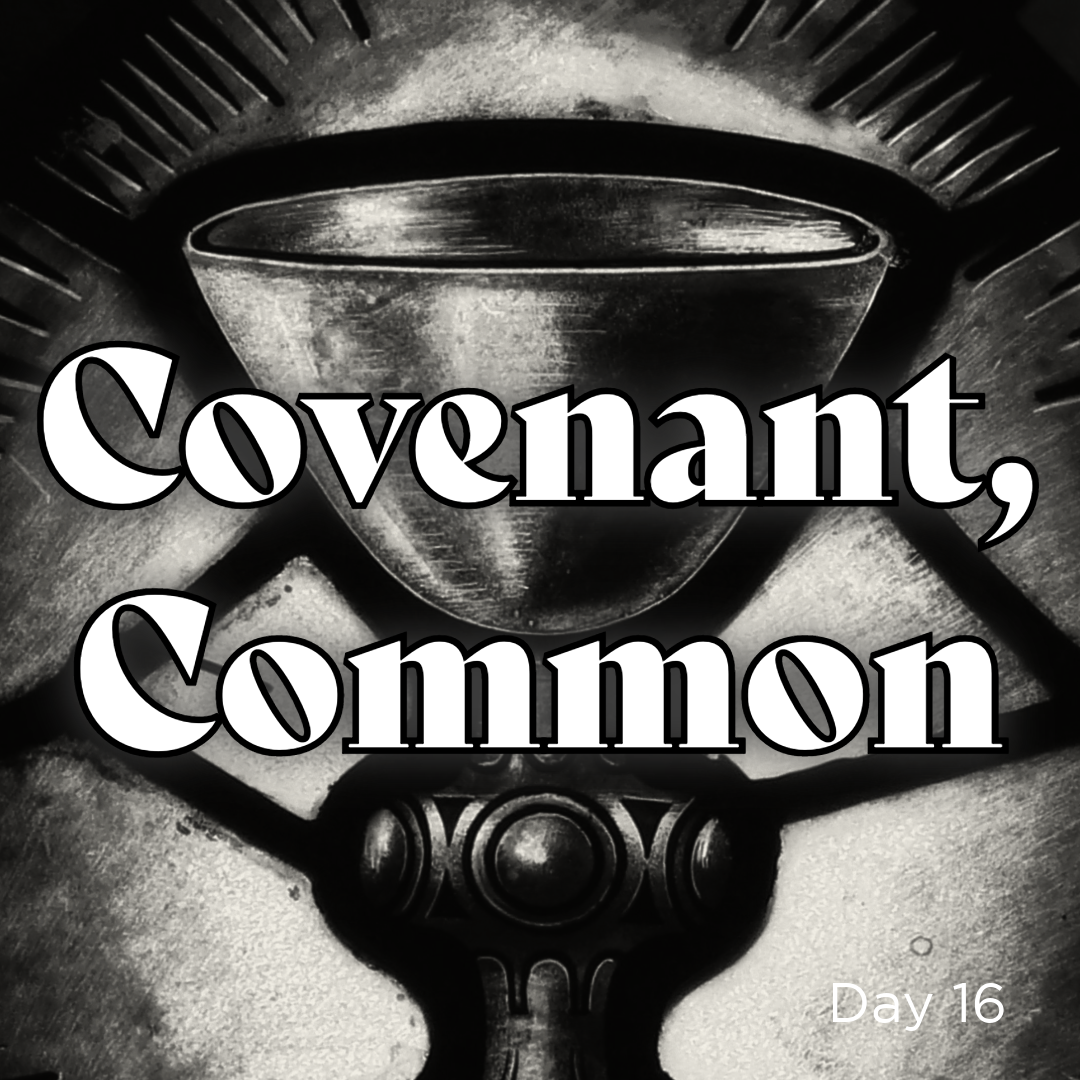Covenant but Common
And when eight days were completed for the circumcision of the Child, His name was called Jesus, the name given by the angel before He was conceived in the womb.
Luke 2:21
John, Michael, Brad, Wigglethistle, what’s in a name? In this case, I suppose we should include Joshua or JESUS, but in saying so we acknowledge that the name was nothing particularly extraordinary. Sure, the name is rooted in “God Saves” or whichever derived translation suits your fancy, “Yahweh Saves,” “The Lord is Salvation,” “The LORD saves,” “God our Savior.” It certainly was not a small or insignificant detail, but what it was not, is a detail anyone found particularly interesting in his time. There were quite literally thousands of Jewish boys running around Israel with the name Jesus.
This isn’t a post about etymology, but yes, for you nerds we know he was Yeshua, which became Iesous in Greek, which melded to Iesus in Latin, and then somewhere ‘I’ became a voiced postalveolar affricate and here we are. But that’s a rather fruitless vine to prune.
He was called Jesus, and later Jesus of Nazareth, or some variation of that, because surnames wouldn’t be a thing for another thousand years or so. The name was common, as was his circumcision on the eighth day. Every other Jesus, John, and Joseph had that unmentionable bloodletting done to them too. They probably weren’t born in stables to angel choruses, but this part was all quite normal and in good order.
God likes order, and that’s the point here. Some of us more chaotic agents squirm a bit under this summary, but alas it’s true. He wanted boys circumcised on the eighth day. He wanted his tabernacle to be precisely 10 x 10 x 30 cubits and a bunch of other dimensions we don’t readily remember, and He likes His tithes, and His ten commandments, and his twelve tribes. He made laws, painfully specific laws, moral and physical, like gravity and prohibitions on gossip. He made math…ouch!
He made covenants, promises which would never and could never be broken, not on His end anyway. He bound Himself by His word to people and deeds, which could not be undone. He is immutable, unchanging in His ways. He does His business rightly and in order. He is the opposite of chaos, though from our perspective we’re not always able to put order to His action. He must be ordered, in the way that we understand it, because it’s the only way he can be. He is never surprised, always perfect in His judgment and perspective and actions. His computations have no lag time because they are extensions of His eternity, and He acts accordingly because His verbs have no tenses.
When we keep covenants, we please Him not just because we are obedient, but because we are being like Him. To be like Him is our highest and most noble purpose and aim.
These little acts of right order and obedience are not unimportant. We honor and glorify God and reflect His character both back to Him and to the world when we conform to our covenants. We glorify God by keeping our marriage vows, fulfilling our contracts, doing our civic duties, and esteeming our relationships; those small unwritten contracts we make with others by giving and receiving trust, and thus why gossip is such a strike against order and integrity.
David was a man after God’s own heart, and oft this is explained to us in his pursuit of right relationship with God. However, we tend to view such right relationship in an emotional devotionalism. But another aspect of that rightness was his utter integrity to his commitments. He would not lift his hand against King Saul, though Saul sought to kill him repeatedly. David would put to death the man responsible for assisting Saul’s preemptive suicide, for no one should raise a hand to the king, the LORD’s anointed, even when the king begged for it and was in the throes of death anyway(2 Samuel 1:1-16). For his love of Jonathan, he grants Jonathan’s lame son Mephibosheth life, a practice unknown, as in this time it was customary, expected, and even wise to put to death all of a previous king’s potential heirs. He even grants Mephibosheth all of Saul’s land, making him a rival in shear wealth. Later, it appears that Mephibosheth has betrayed David and joined Absalom’s coup. When the coup is put down, Mephibosheth pleads his innocence , but the evidence is not in his favor. David chooses to forgive him and restore to him half of his lands which had in the meantime been bequeathed to a loyal but conniving servant. David continues to honor his promise to Jonathan, even in the face of betrayal. When David is passing the kingdom to Solomon, he recounts to him some important allies and enemies. He had made an ill-advised oath of life to an enemy Shimei who cursed him and attempted to overthrow his reign with Absalom. Because of his oath he would not put this bitter enemy to death in his lifetime despite his strong desire to do so. David ruthlessly kept his word, honored his covenants, maintained integrity even in the face of betrayal and deceptions.
Exactly like God does for us.
How would you evaluate your own life in terms of order and integrity?
In what ways could your daily life be marked by more small obediences?
